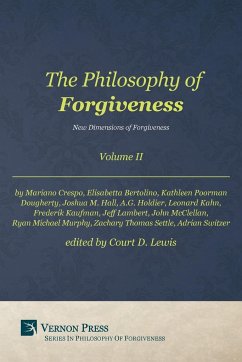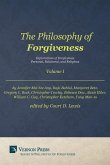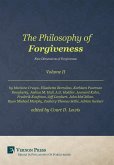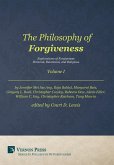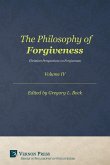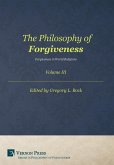Volume II of Vernon Press's series on the Philosophy of Forgiveness offers several challenging and provocative chapters that seek to push the conversation in new directions and dimensions. Volume I, Explorations of Forgiveness: Personal, Relational, and Religious, began the task of creating a consistent multi-dimensional account of forgiveness, and Volume II's New Dimensions of Forgiveness continues this goal by presenting a set of chapters that delve into several deep conceptual and metaphysical features of forgiveness. New Dimensions of Forgiveness creates a theoretical framework for understanding the many nuanced features of forgiveness, namely, third-party forgiveness, forgiveness as an aesthetic process, the role of resentment in warranting forgiveness, the moral status of self-forgiveness, epistemic trust, forgiveness's influence on the moral status of persons, forgiveness in time, the status of Substance and Subject within a Hegelian framework, Jacques Derrida's "impossible" forgiveness, and the use of imaginative "magic" to become a maximal forgiver. Readers will be challenged to question and come to terms with many oft-overlooked, yet important philosophical dimensions of forgiveness.

